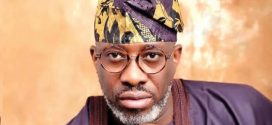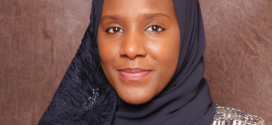In 1960 British prime minister Harold MacMillan embarked on a tour of African colonies, famously proclaiming that a “wind of change” was blowing through the continent. It was an acknowledgement that African nations were ready to govern themselves and the days of Empire were ending.
It was a moment where Britain looked into the future and saw new possibilities while countries like Nigeria saw a chance to thrive as an independent state.
Macmillan’s speech was a mutual recognition of change for the benefit of all both in Africa and Britain.
That spirit helped us to reform the old imperial partnership into the Commonwealth. We were able to move forward together as partners and friends instead of masters and servants.
Now, 58 years later, as the current Prime Minister Theresa May tours Africa, a new wind of change is blowing. The wind has a name – Brexit.
While some in Europe see it as a destructive power this new wind, if harnessed properly, could blow life back into the old relationships in the Commonwealth and fan the fires of progress and prosperity in Nigeria and across Africa.
My sincere belief is that Brexit can be a great force for good. It could blow down barriers which have prevented Nigeria and other countries from grasping their potential.
Let us face facts: Britain’s membership of the EU should compliment its older Commonwealth relationships. It should not have been an either/or situation.
The EU’s single market is a great example of free trade but where it becomes a case of fortress Europe against the rest of the world then free trade suffers. It imposes high tariffs, particularly on agricultural products but also minerals which punish countries such as Nigeria, preventing us from turning ourselves into an economic powerhouse.
For us in Nigeria agriculture is a vital sector. It employs 70 per cent of the workforce and the 76 million acres dedicated to it covers a third of our land.
And yet time and again we are hit by EU tariffs on products such as sugar cane and rice. This is aimed at protecting European producers, often for products which are not farmed in Britain.
Sugar cane from Nigeria faces a 115.4 per cent tariff while if we refine it for human consumption it becomes 375.6 per cent. Impossible to trade.
Rice, maize and other cereals face tariffs of more than 50 per cent. This is an EU protection racket which drives up prices in Britain and deliberately holds back developing nations. The poorest in my country and yours pay the highest price for this.
If Nigeria and other African countries could export agricultural products tariff-free to Britain it will bring down the cost of food significantly.
Not only that, a fair playing field for trade will add to Nigeria’s prosperity. So it is a win-win situation for Africa and Britain.
The EU should not lock developing nations out of trade while pouring in billions in aid to them. Trade is the best aid.
Britain’s aid budget is £13billion of which £445million is allocated for Nigeria in the next two years.
Yet if we were able to trade fairly and release our economic potential then aid would become unnecessary and we could be true partners with the wealth to invest in our people.
As Mrs May visits our nation this week I urge her to look at a more ambitious project. Let us renew the Commonwealth by going for a Commonwealth freetrade agreement between all its members.
The future is in Africa and Asia, not Europe. At the moment the Commonwealth has a GDP worth £10trillion – behind the EU’s £11trillion but it is catching up and will pass it.
Already, the UK is exploring free-trade deals with Australia and New Zealand, two important Commonwealth members but I hope the Prime Minister pushes for deals in Africa.
It is time to release the African lion economies such as Nigeria, South Africa and Kenya. We can be the catalyst for a worldwide Commonwealth trade deal with none of disadvantages of the EU’s attempt to run Britain from Brussels.
My message to Mrs May is think big and harness this new wind of change for the good of Britain, Nigeria, Africa and the world.
_Atiku Abubakar, a businessman and philanthropist, was Nigeria’s vice-president from 1999 to 2007 and is a presidential candidate in February’s election._
 Hottestgistnaija.com
Hottestgistnaija.com



